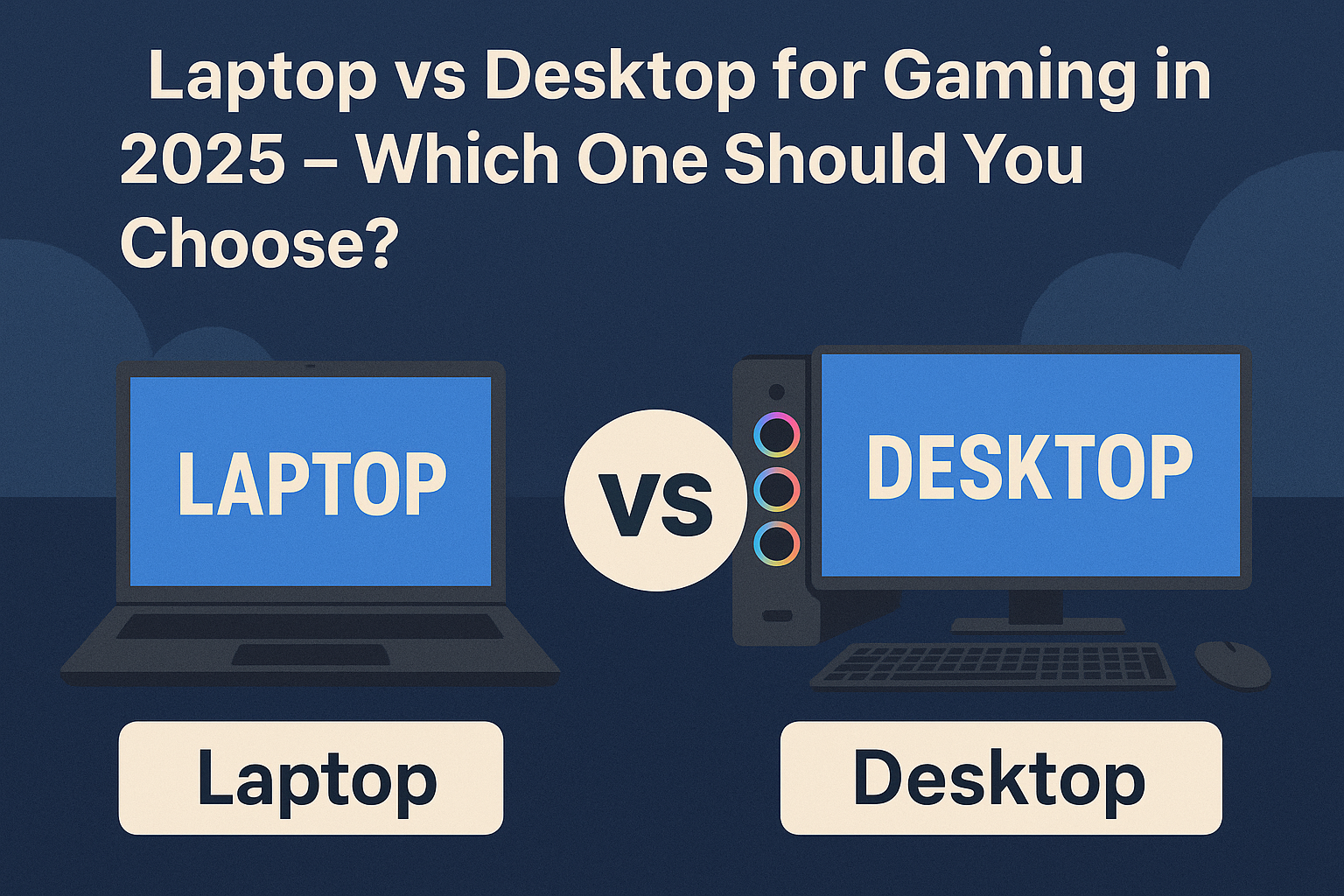In 2025, the choice between laptop vs desktop for gaming isn’t just about raw specs—it’s about how you live and play. Maybe you’re always on the move and need something compact, or perhaps you have a dedicated space and want the ultimate performance. While the gap between laptop vs desktop gaming has narrowed over the years, making the right decision still matters—especially if you’re investing serious money. This guide breaks down everything you need to know to pick the setup that truly fits your gaming lifestyle.
Who Needs to Make This Choice?
If you’re torn between buying a gaming laptop or building a gaming PC, you’re not alone. In 2025, this decision affects students, digital nomads, competitive gamers, and casual players alike. And if you’re spending over $1000, you want to make the right choice.
Why This Debate Still Matters in 2025
Laptops have become more powerful, and desktops more affordable. But even in 2025, performance gaps, thermal limits, and upgrade options still set them apart. Making the wrong choice could mean spending more for less—or missing out on flexibility you didn’t know you needed.
🖥️💻 Gaming Laptop vs Desktop Comparison (2025)
| Category | 💻Gaming Laptop | 🖥️Gaming Desktop |
|---|---|---|
| Performance | Great for most games, with mobile GPUs like RTX 4070/4080. But under heavy load, thermal throttling kicks in. | Full-size GPUs (like RTX 4090) give desktops an edge—especially in sustained or high-end performance. |
| Portability | Super portable. Great for students, travelers, or small-space setups. Built-in screen, keyboard, and battery. | Not portable at all—but it’s built for power. Requires space, monitor, and separate peripherals. |
| Thermals & Noise | Gets hotter faster. Fans kick in early and can get loud, especially in gaming sessions. | Better airflow and bigger fans keep things cool and quiet—even when you’re pushing performance. |
| Price vs Value | You pay extra for convenience. A $1,500 laptop may not match a $1,200 desktop in raw gaming power. | More power per dollar. Just remember you’ll need to buy a monitor and other accessories separately. |
| Upgradability | Very limited. You can usually upgrade RAM and SSD—CPU and GPU are often soldered. | Fully customizable: GPU, CPU, RAM, storage, cooling—you name it. Easy to upgrade over time. |
| Lifespan | Components wear faster—battery, screen, hinge. Heavy gaming can reduce lifespan. | Long-term value: easy repairs and upgrades mean desktops often outlast laptops in real-world use. |
| Best For | People who need mobility and simplicity. Ideal for students, nomads, or shared living spaces. | Gamers who want the best performance, future-proofing, and love customizing their gear. |
So, Which One Should You Choose?
Pick a Gaming Desktop if:
- You want the best frame rates and raw performance
- You plan to upgrade over time or tweak your build
- You have a stable space for gaming or work
Pick a Gaming Laptop if:
- You value portability and compact setups
- You’re often on the move (student, remote worker, digital nomad)
- You’re okay with mid-range performance and fewer upgrade options
Real Talk: Picture Your Setup
Picture this: you’re playing Elden Ring II in ultra settings, on a giant ultrawide monitor, fully immersed with zero lag. That’s desktop territory. Now picture gaming from your Airbnb or a café—playing Apex Legends on a sleek, light 14-inch laptop while traveling for work. That’s the beauty of portability.
Both scenarios are valid. It just comes down to how and where you game.
What’s Next?
If you’re leaning toward a gaming laptop, start here:
📘 [Best Gaming Laptops of 2025 – Performance Meets Portability]
If a desktop gaming rig is more your style:
🛠️ [Ultimate $1500 Gaming PC Build – 2025 Edition]
⚠️ [Top 5 Mistakes to Avoid When Building a Gaming PC]
